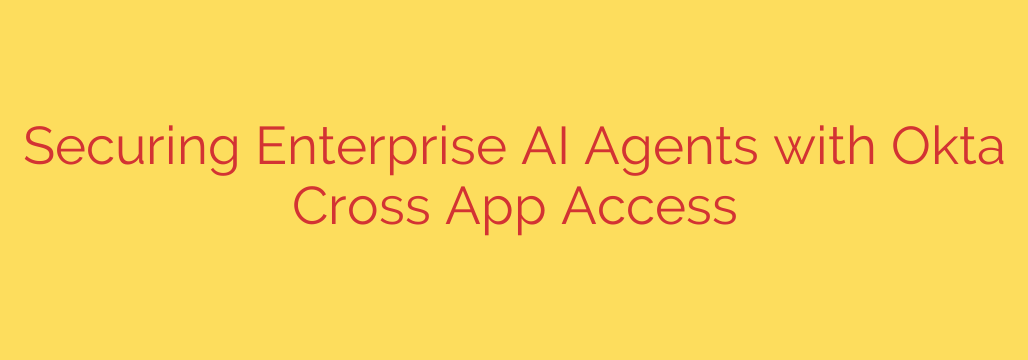
The rise of artificial intelligence (AI) agents within the enterprise brings unprecedented opportunities for automation and efficiency. However, these agents often require access to sensitive data across various applications, posing significant security challenges. Traditional methods like managing individual API keys for each application connection become cumbersome, difficult to scale, and increase the risk of over-privileged access. Relying on service accounts can also create blind spots, making it hard to audit actions performed by the AI agent and link them back to a specific user context.
A more robust security posture is essential for deploying AI agents responsibly. The principle of least privilege, ensuring agents only access what they absolutely need, is paramount. Furthermore, organizations require better visibility and control over agent activity to meet compliance requirements and prevent data breaches.
Addressing these challenges requires an advanced approach to identity and access management (IAM). One effective strategy involves leveraging capabilities designed for secure, cross-application interactions, specifically tailored to the needs of modern AI workloads. This method focuses on delegating authority and context, allowing the AI agent to act on behalf of a specific user while maintaining the necessary guardrails.
By utilizing a feature like Cross-App Access, organizations can enable AI agents to securely interact with multiple applications without requiring separate, high-privilege credentials for each one. Instead, the agent’s access is governed by the same authorization policies and user context that apply to human users. This means if a user does not have access to a specific application or data, the AI agent acting on their behalf won’t either.
Implementing this kind of delegated access offers several key advantages:
- Enhanced Security: Reduces the attack surface by minimizing the use of static credentials and enforcing real-time access controls.
- Simplified Management: Centralizes the management of AI agent permissions through existing IAM infrastructure, eliminating the sprawl of API keys and service accounts.
- Principle of Least Privilege: Access is dynamically granted based on the user’s permissions, ensuring the agent operates with the minimum necessary privileges.
- Improved Auditability: Actions performed by the AI agent can be linked directly to the initiating user, providing clear audit trails for governance and compliance.
- Accelerated Deployment: Securely connecting AI agents to necessary resources becomes faster and more streamlined.
Adopting such a strategy is crucial for harnessing the power of enterprise AI securely. It shifts the focus from managing technical connection credentials to managing the identity and permissions of the AI agent within the established security framework, aligning AI operations with the organization’s overall zero trust initiatives. This ensures that as AI agents become more integrated into business processes, they do so without compromising data security or increasing operational risk.
Source: https://www.helpnetsecurity.com/2025/06/23/okta-cross-app-access/








